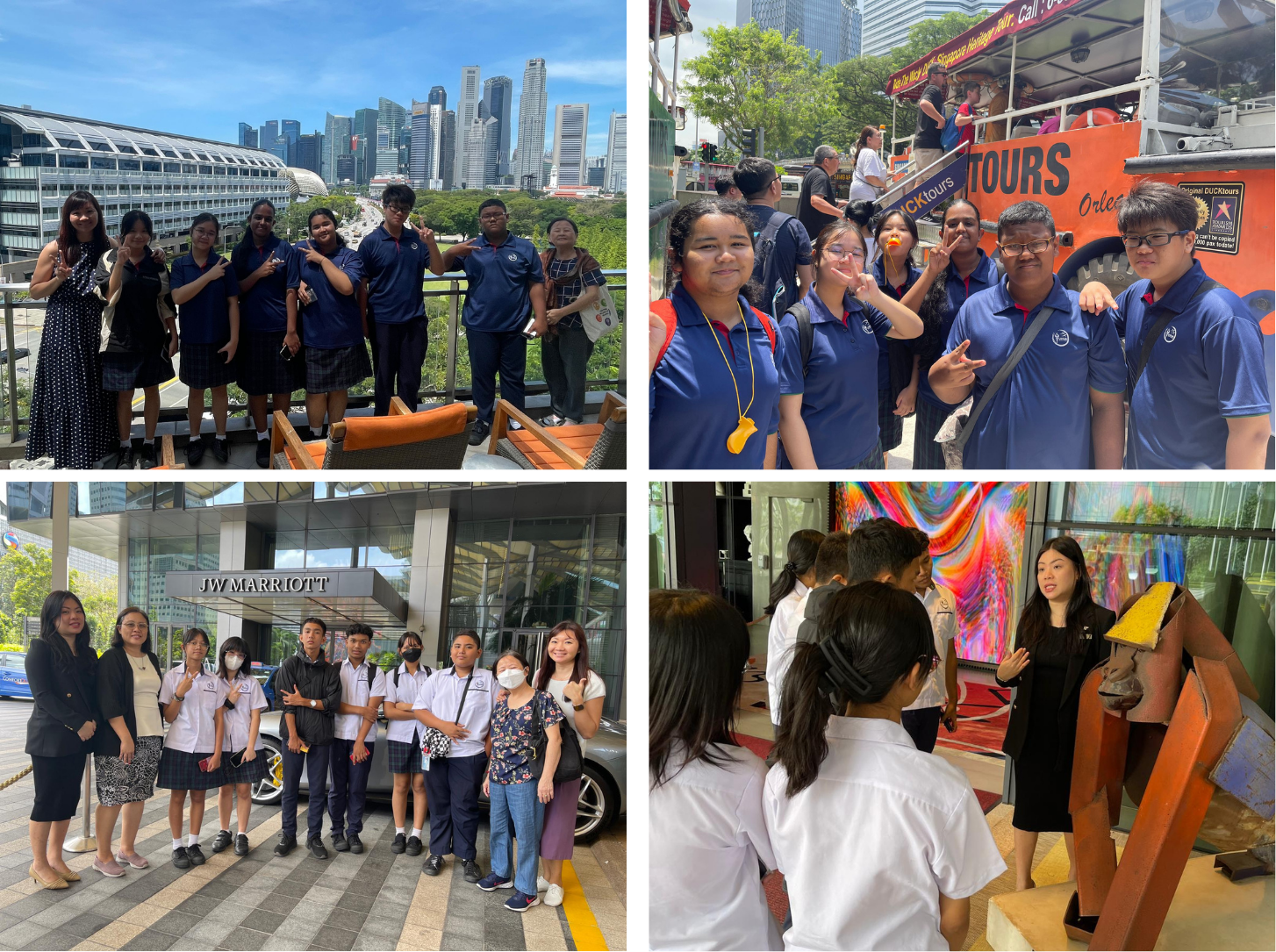Mathematics
Mathematics
Our Team
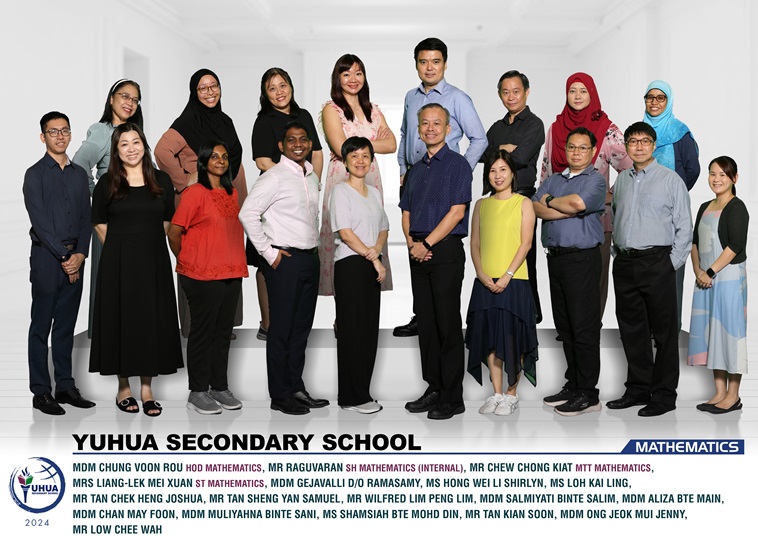
CURRICULUM OBJECTIVES:
-
To create a positive learning experience for students so that they develop confidence in problem solving.
-
To encourage the practice of effective habits and routines to make learning more productive.
-
To make acquisition of knowledge and skills interesting and meaningful.
-
To provide feedback and interventions, focusing on effort and progress.
Signature Programme(s)
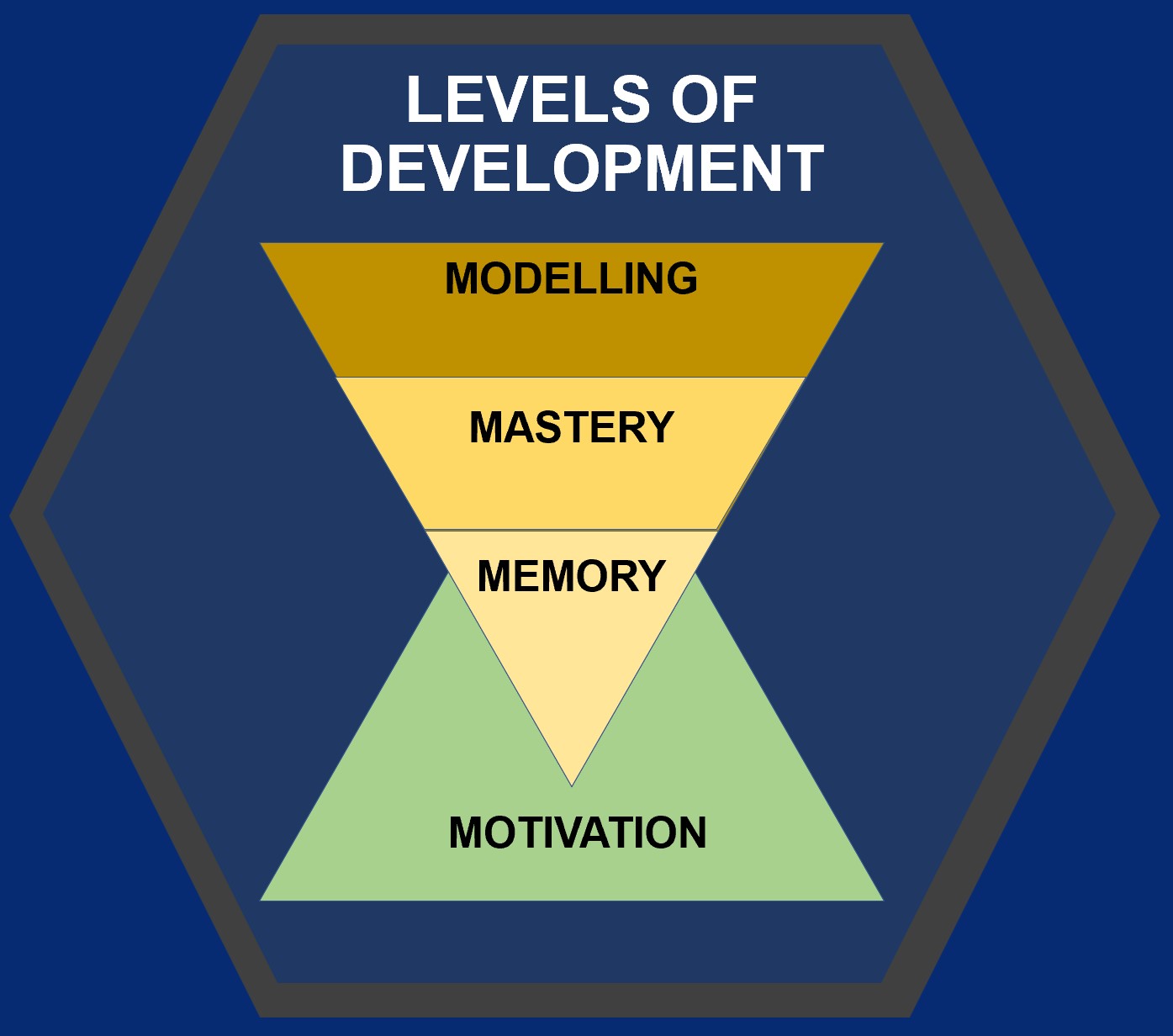
LEVELS OF DEVELOPMENT
MOTIVATION:
Students have a growth mindset and enjoy learning. The PERMA model for
Positive Education is adopted to provide students with the necessary motivation
to engage in mathematics learning.
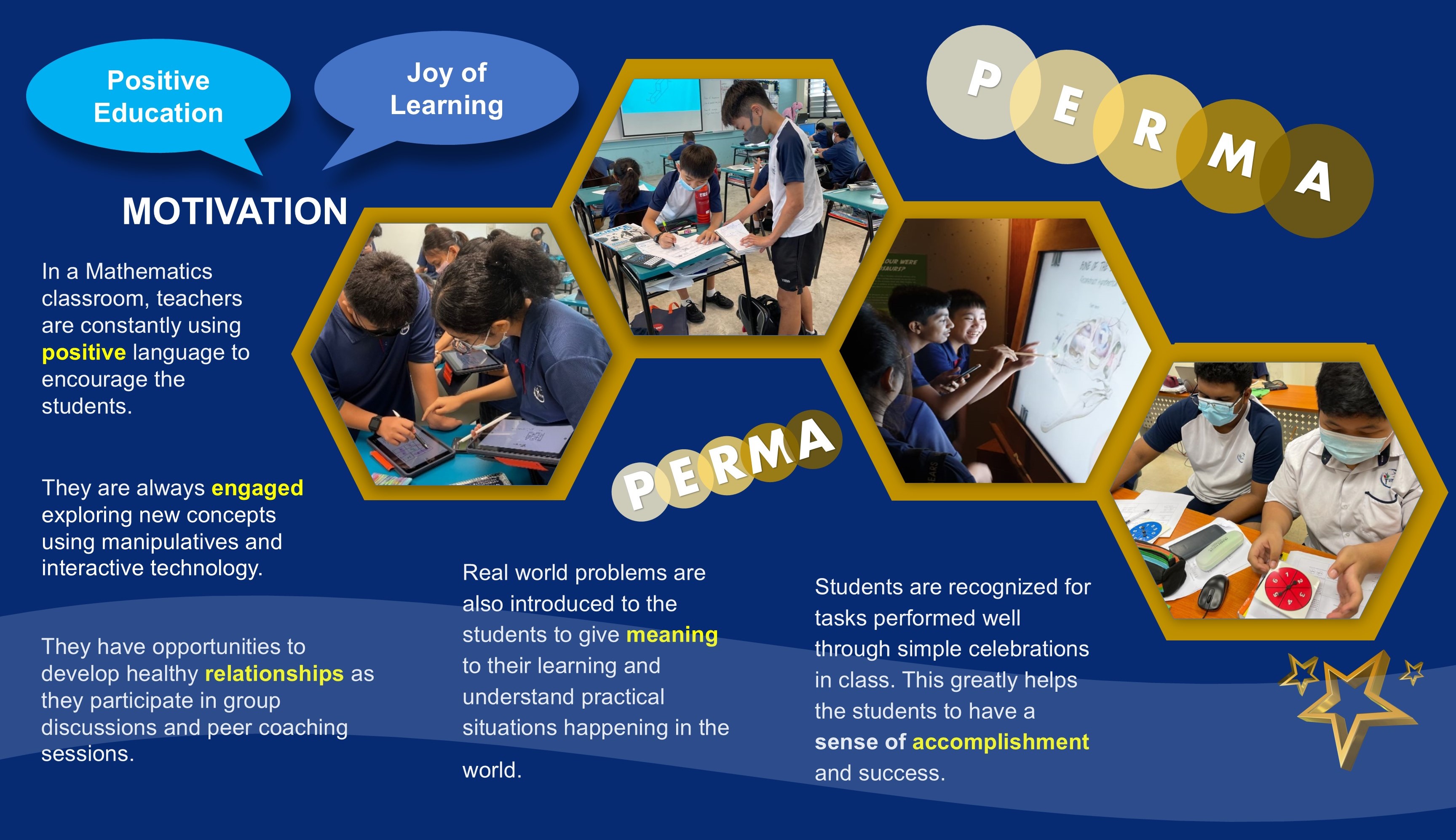
MEMORY
Students learn, remember and recall math concepts correctly.
MASTERY
Students perform manipulations and calculations accurately.
MODELLING
Students frame the problem, identify the approach and apply values-skills-knowledge
in solving problems creatively.
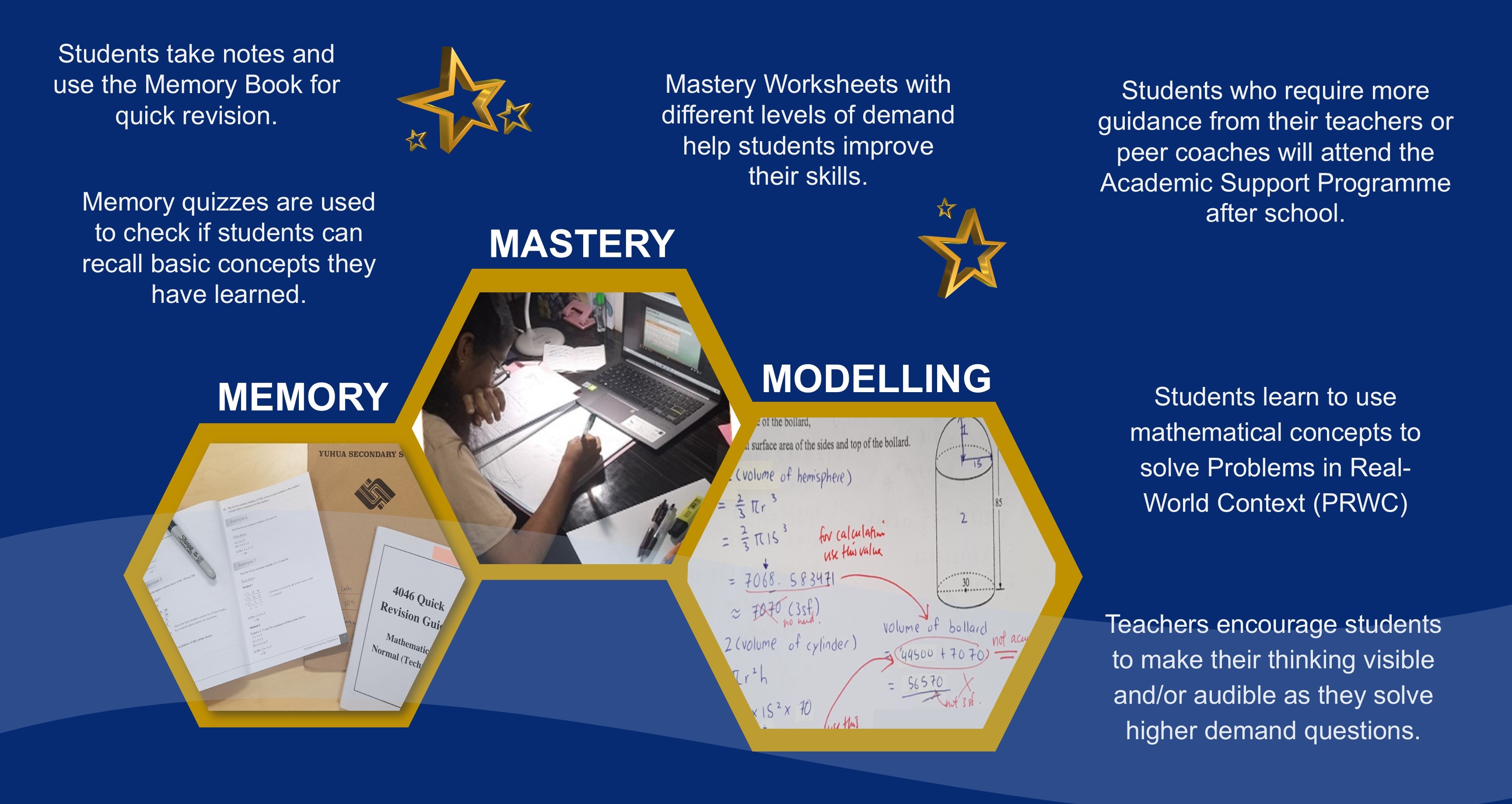
DESIRED STUDENT OUTCOMES
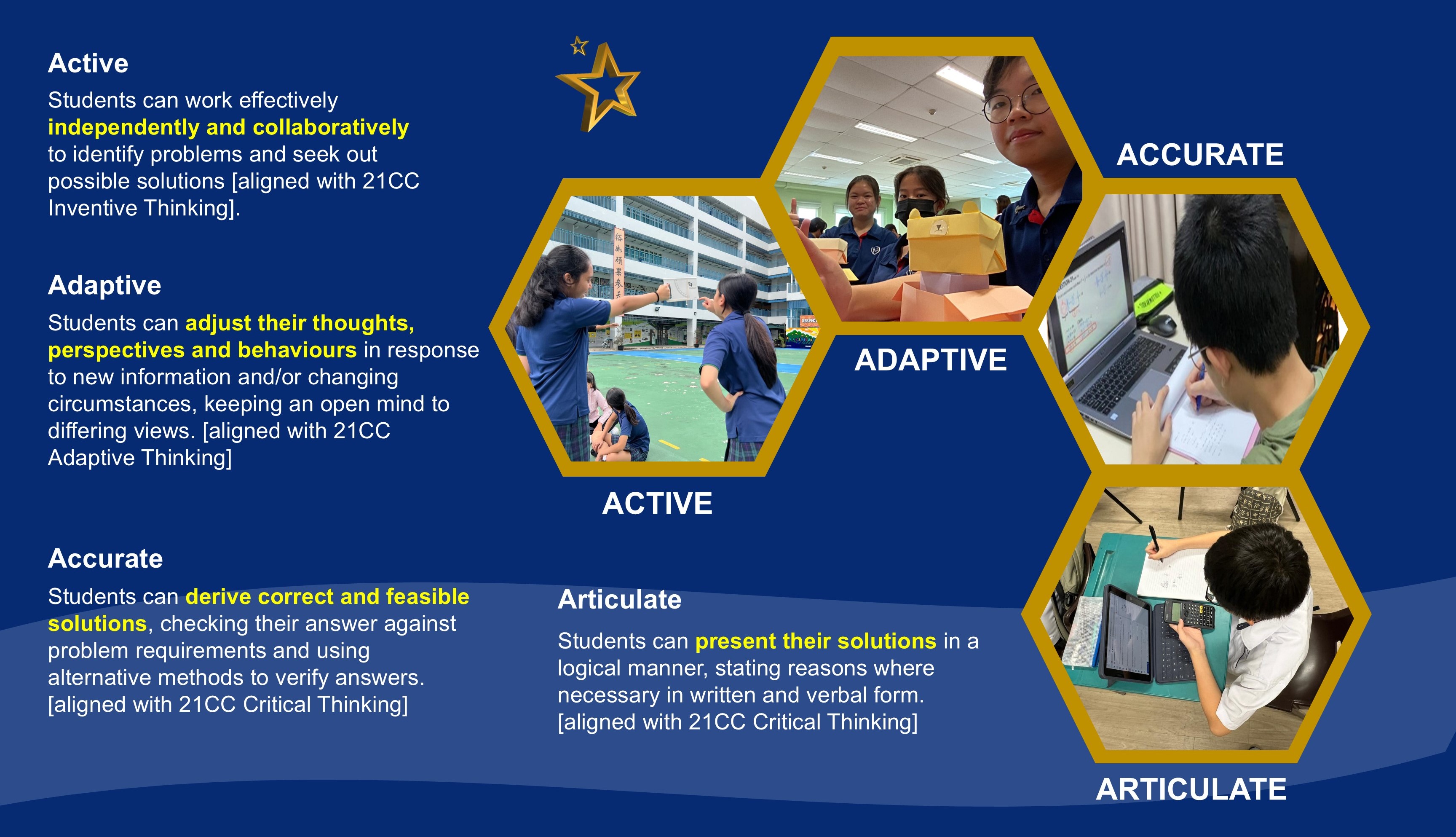
PARTICIPATION AND ACHIEVEMENTS
PEER COACH TRAINING
Math peer coaching is a collaborative learning approach where students
work together to enhance their understanding of mathematical concepts.
This method involves more experienced or knowledgeable students assisting
their peers in tackling challenging problems, clarifying doubts, and developing
effective study strategies. Peer coaching in math is useful because it
fosters a supportive learning environment, encourages active engagement,
and builds confidence among students. By explaining concepts to others,
peer coaches reinforce their own understanding, while learners benefit
from personalized guidance and diverse perspectives, ultimately leading
to improved academic performance and a stronger grasp of mathematical principles.
Singapore Mathematics Olympiad (SMO) 2024
Honorable Mention
ARYA TALESARA 4 Contribute
Certificate of Participation
ONG JING KANG, DYLAN 4 Contribute
ONG CHEN TECK BRAYDEN 4 Contribute
GOVINDARAJU VAISHNAVA PRIYAN 4 Connect
CHEW SHI AN RYAN 4 Contribute
CHAN ZHI HNG 4 Contribute
JOEL LI JUN HUI 4 Contribute
TAN JUN HON 4 Contribute
ALL SECONDARY SINGAPORE MATHEMATICS COMPETITION 2023:
Certification of Participation
4NA: Ho Jun Jie – 4 Adaptability
Richard Chen Fu Hai – 4 Respect
Nimer Lance Jeren Jara – 4 Responsibility
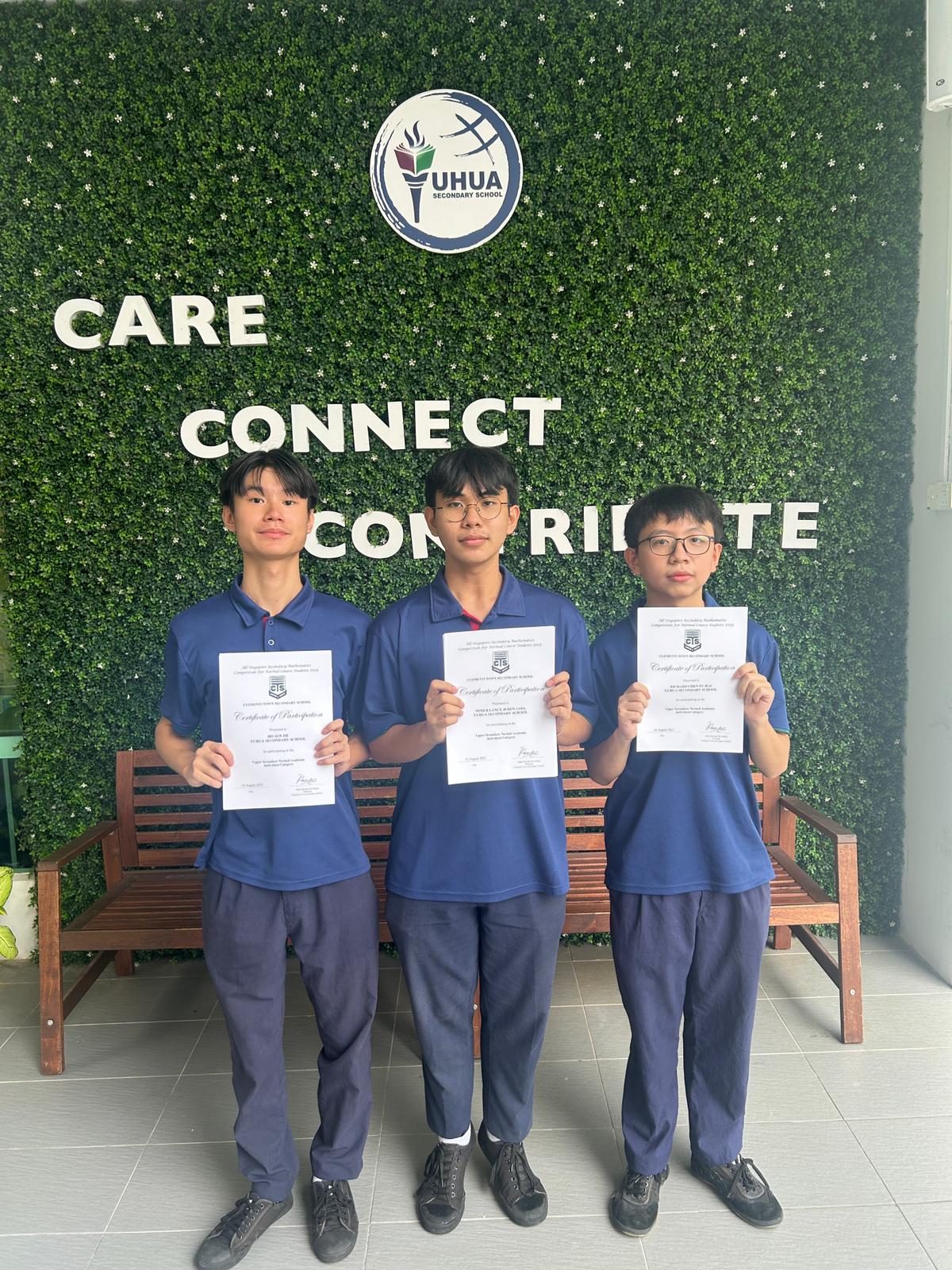
4NT:
KOH KE XIN - 4 Curiosity
NUR MUHAMAD SYAFIQ BIN MAZLAN - 4 Curiosity
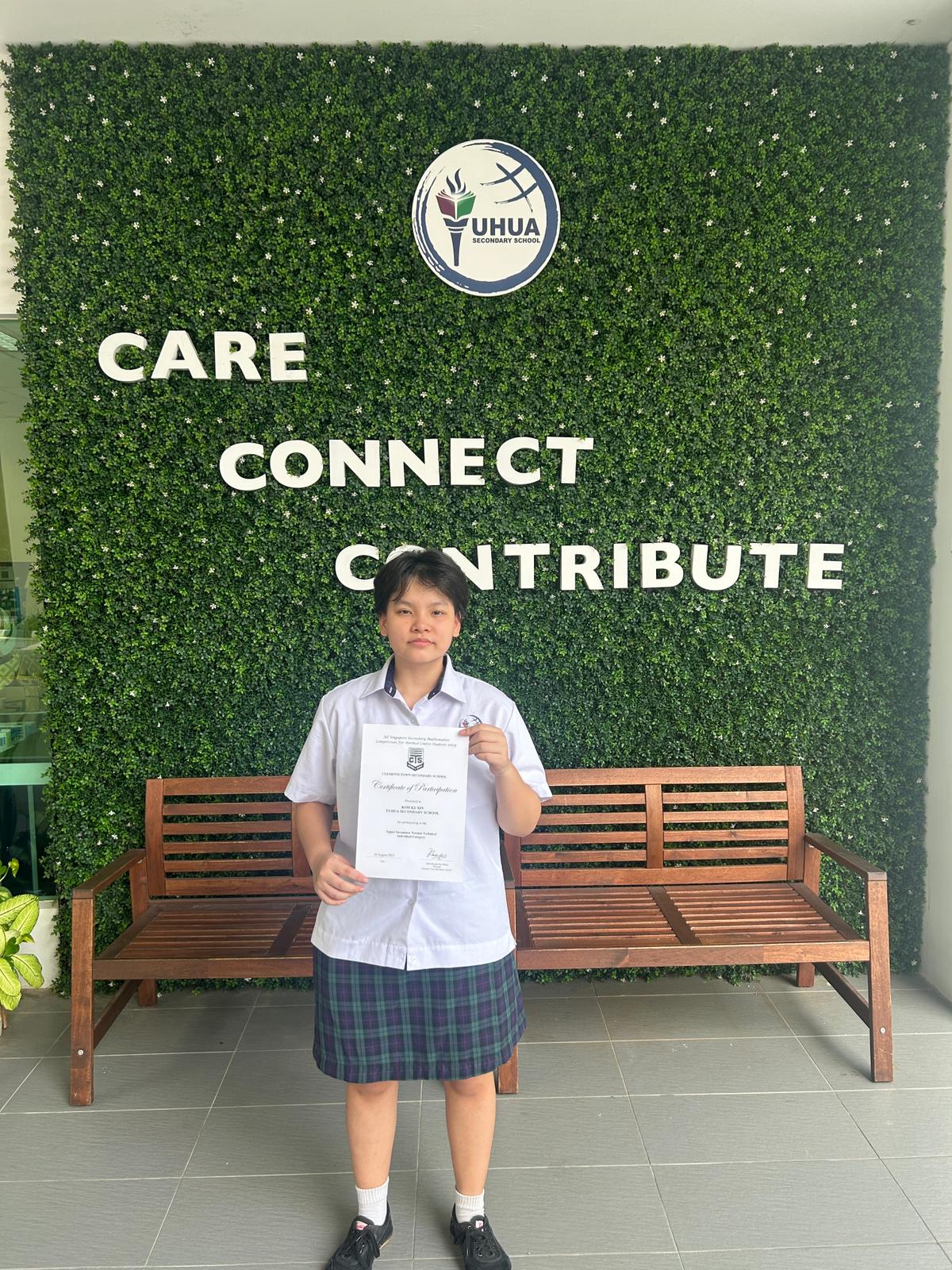
SINGAPORE MATHEMATICAL OLYMPIAD 2023
Certificate of Participation
HAN HANAQI BIN HAMRAN - 4 Connect
YAU DE YANG DAYAN - 4 Connect
JORDAN YAM JIE MING - 4 Contribute
TING MAN EN - 3 Contribute
ARYA TALESARA - 3 Contribute
CHAI JUN HAO - 3 Contribute
CHLOE LIM XIN HUI - 3 Contribute
GOVINDARAJU VAISHNAVA PRIYAN - 3 Connect
MUHAMMAD MIKHAIL BIN MOHAMMAD FIRHAN - 3 Connect
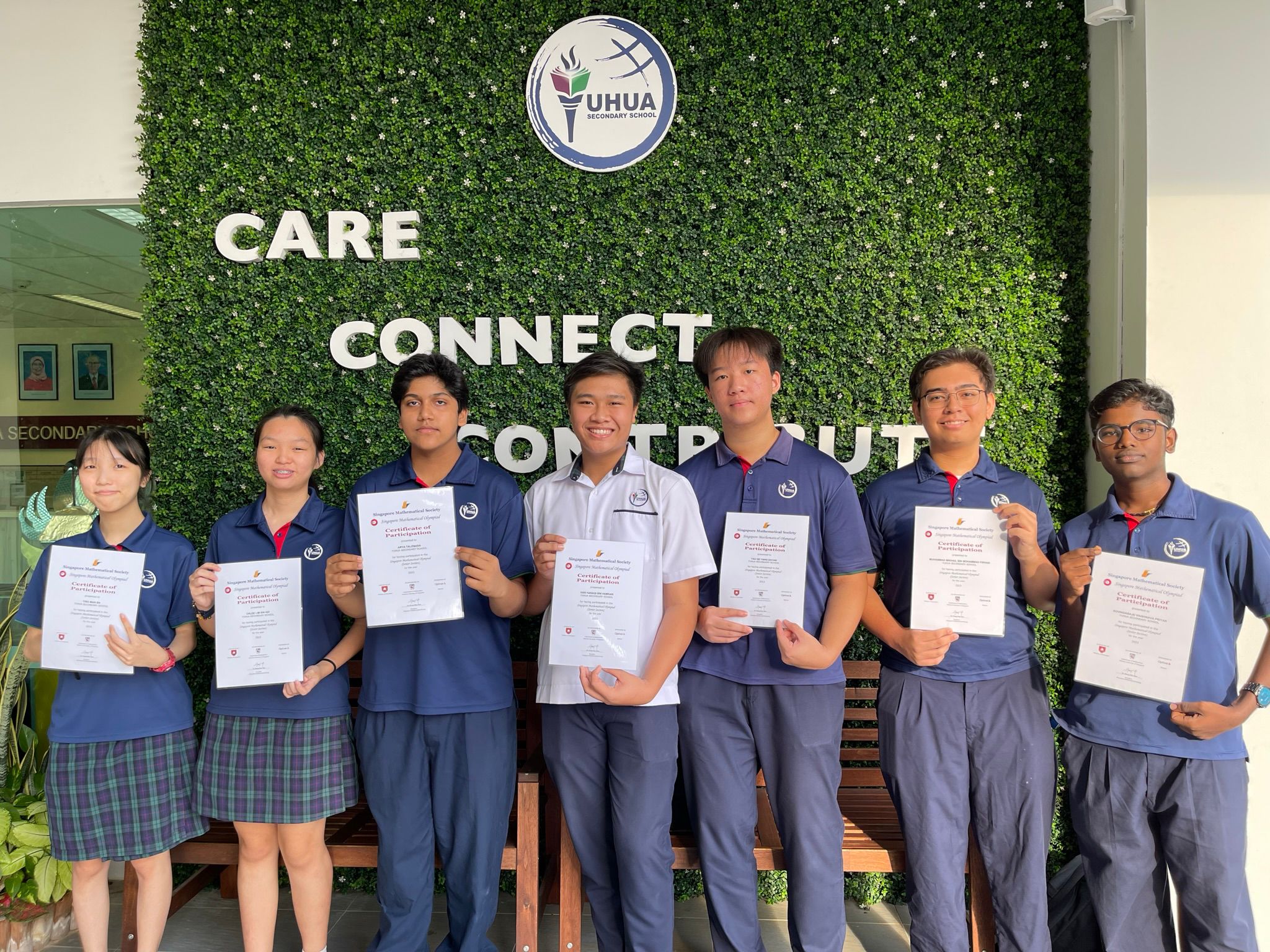
YUHUA MATH MODELLING CHALLENGE 2023
Team Champions (2 Normal Stream)
2 Curiosity - GERLIN HO HUI WEN, LEONG QI EN JOWIN, PUTERI HAZ DIYANAH,
TEO NING NI
2 Adaptability - CHEN YI HAO, QIU BINNI, ARIQ DANIYAL
2 Respect - JAYDEN TEO XU KAI, HAU QI XUAN, TAN XI HUI
2 Responsibility - GREGG SIAH, ONG MINRU, FREDDY HO ZHAN HUI
Team Champions (2 Express)
2 Contribute - RAGHURAM SENTHIL KUMAR, STEVE SOE WAI YAN HTET, MUTHUKKUMARAN
ANURADHA MAHESH, MAO YUXI
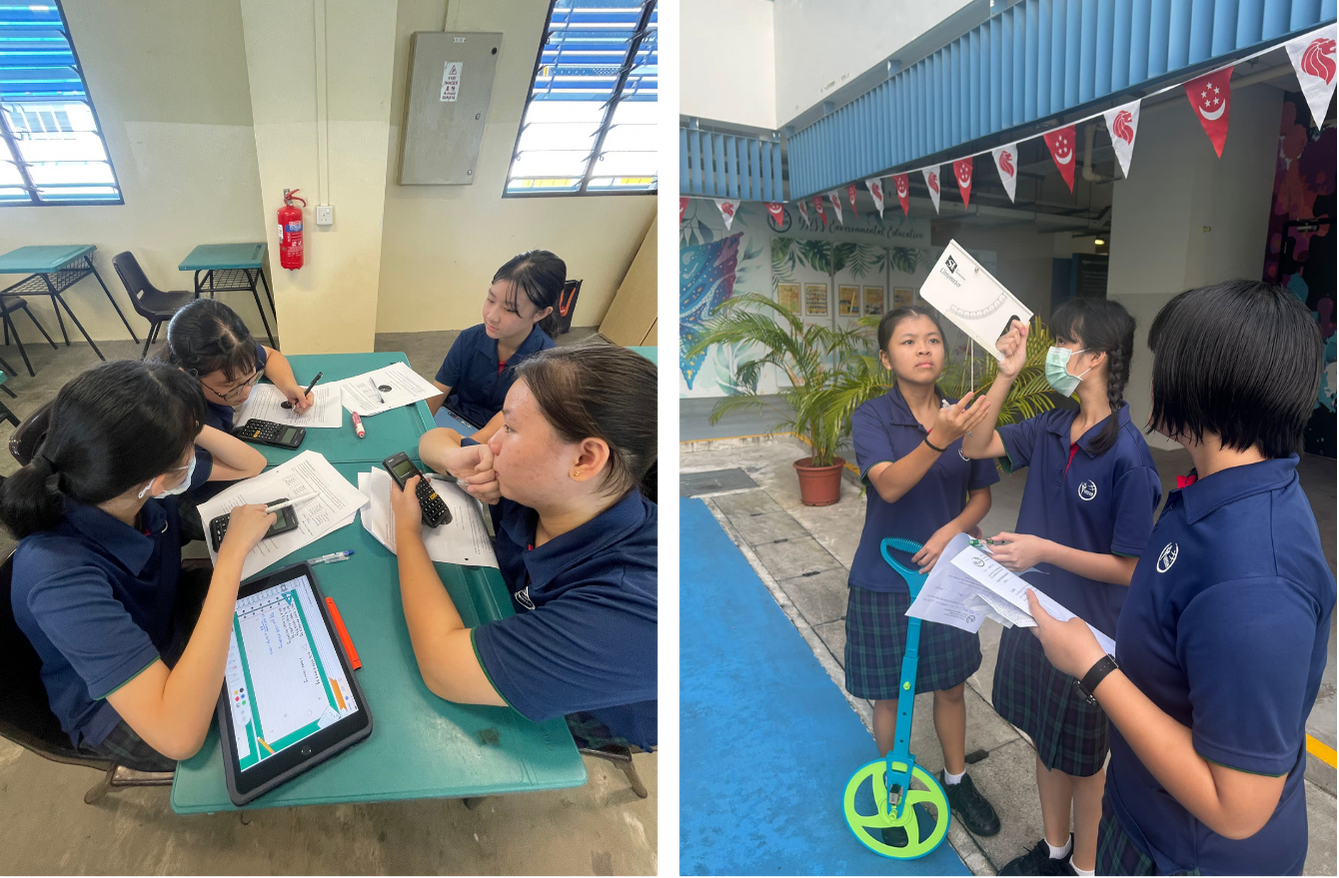
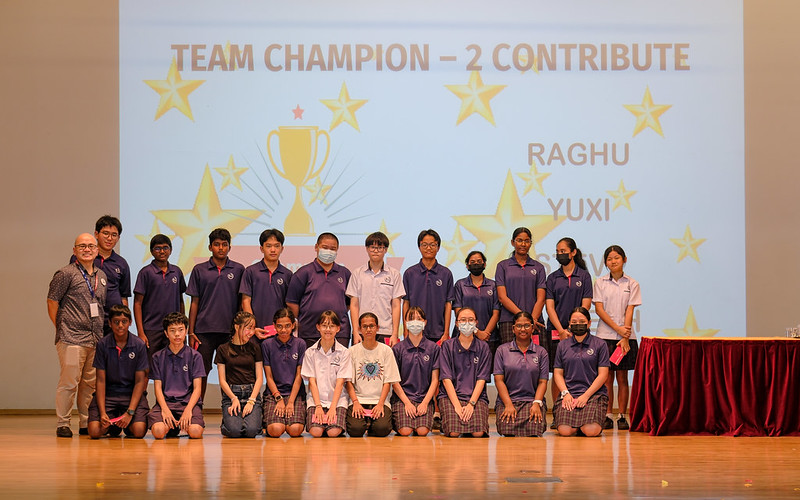
ELEMENTS OF BUSINESS SKILLS
Students were immersed in a world of hospitality excellence at JW Marriot Hotel as they toured the hotel’s luxurious amenities. The staff warmly welcomed the teachers and students, providing them with first hand insights about customer service and hotel operations. This experience enabled students to broaden their understanding of business management and relate their learning to real life. This year, we brought the students for Duck Tour (tourist attraction) & a trip to Suntec City to look at the different retail & F&B outlets to further enhance their learning experience.
